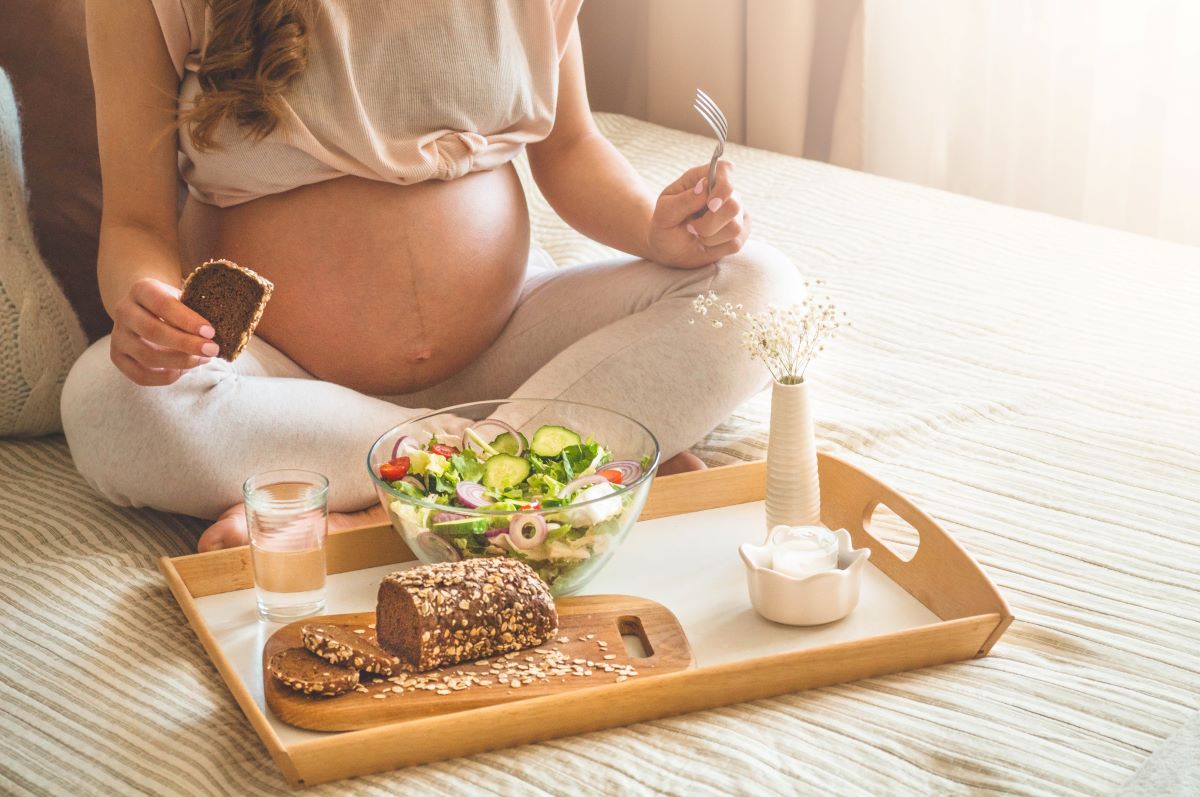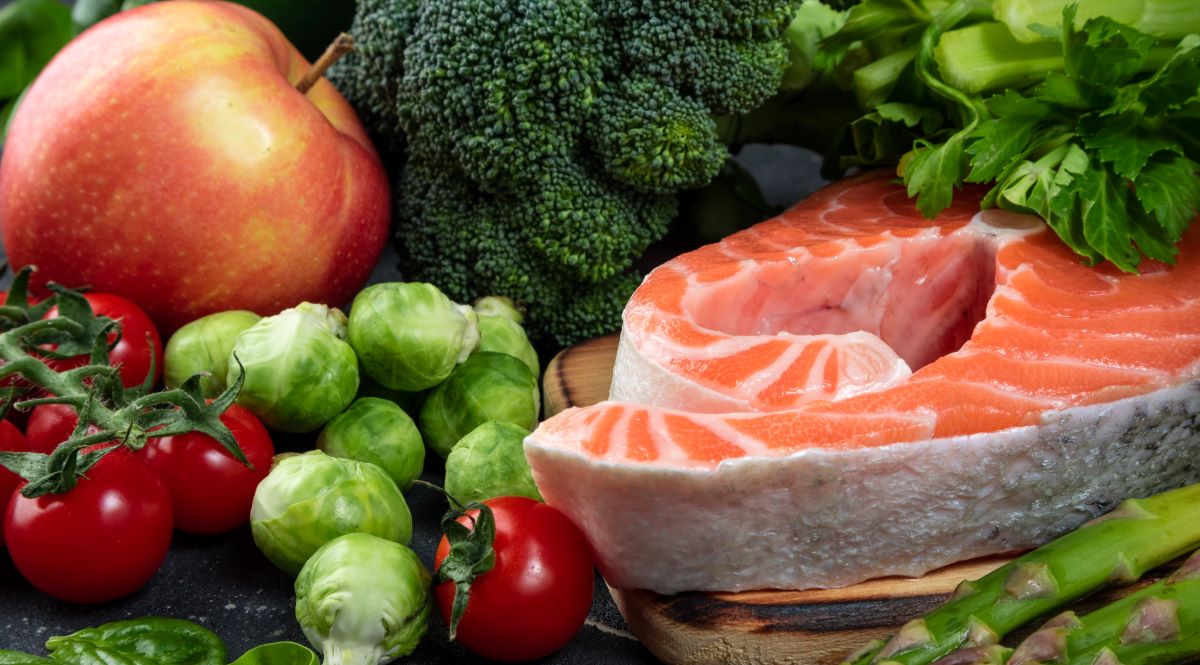Preparing a Nutrient-Rich Pregnancy Diet Pregnancy is a special time for every woman, and taking care of one's nutritional needs becomes of utmost importance. Understanding the essential nutrients required during this phase is key to ensuring a healthy pregnancy journey. In this blog post, we will delve deep into the significance of folic acid and iron, explore top sources of essential vitamins to support a healthy pregnancy, and discuss the importance of balancing macronutrients for optimal maternal and fetal health. Additionally, we will shed light on common nutrient deficiencies that can impact pregnancy outcomes. So, let's embark on this exciting nutritional journey for a thriving pregnancy!

During pregnancy, it is crucial for women to understand their nutritional needs in order to ensure a healthy and successful pregnancy. The body undergoes numerous changes during this period, and adequate nutrition plays a major role in supporting the overall well-being of both the mother and the developing baby.
One of the key nutrients that pregnant women require is folic acid. Folic acid is essential for proper fetal development, particularly in the early stages of pregnancy. It plays a vital role in cell division and the formation of the baby's neural tube, which eventually develops into the brain and spinal cord. To meet the recommended daily intake of folic acid, it is important to include foods such as leafy green vegetables, citrus fruits, beans, and fortified cereals in the diet.
In addition to folic acid, iron is another crucial nutrient that pregnant women need to pay attention to. Iron is necessary for the production of red blood cells, which carry oxygen to both the mother and the baby. During pregnancy, blood volume increases to support the growing fetus, resulting in a higher demand for iron. To prevent iron deficiency anemia, it is recommended to consume iron-rich foods such as lean meats, beans, leafy green vegetables, and fortified grains.
Folic acid and iron are two essential nutrients that play a vital role in the health of pregnant women. Both of these nutrients are crucial for the proper development of the baby and the overall well-being of the mother. Let's take a closer look at the importance of folic acid and iron during pregnancy and how they contribute to a healthy and successful pregnancy.
The Importance of Folic Acid: Folic acid, also known as folate, is a B-vitamin that is essential for the development of the baby's neural tube, which eventually becomes the brain and spinal cord. It is particularly important during the early stages of pregnancy when the neural tube is forming. Folic acid helps to prevent neural tube defects such as spina bifida, where the baby's spinal column does not close properly. It also plays a role in the production of red blood cells and the development of a healthy placenta.
The Role of Iron: Iron is necessary for the production of hemoglobin, a protein that carries oxygen to the body's cells. During pregnancy, a woman's blood volume increases to support the growing baby, and as a result, she needs more iron to produce enough hemoglobin. Iron is also crucial for the development of the baby's brain and overall growth. Iron deficiency during pregnancy can lead to anemia, fatigue, and an increased risk of preterm birth and low birth weight.
| Folic Acid Intake | Iron Intake |
|---|---|
| 400-800 micrograms per day | 27 milligrams per day |
In conclusion, folic acid and iron are essential nutrients that pregnant women must incorporate into their diet. Folic acid helps prevent neural tube defects and aids in red blood cell production, while iron supports the production of hemoglobin and overall growth. By consuming a balanced diet and meeting the recommended daily intakes of folic acid and iron, pregnant women can ensure a healthy pregnancy and the proper development of their baby.

During pregnancy, it is crucial to ensure that you are receiving the necessary vitamins and minerals to support both your own health and the development of your baby. Essential vitamins play a key role in various aspects of pregnancy and can contribute to the overall well-being of both the mother and the fetus. Let's explore some of the top sources of these vital nutrients that can help promote a healthy pregnancy.
1. Folic Acid:
Folic acid, also known as vitamin B9, is one of the most important vitamins for pregnant women. It plays a significant role in the early development of the baby's neural tube, which eventually forms the brain and spinal cord. Rich sources of folic acid include green leafy vegetables such as spinach, kale, and broccoli. Fortified cereals, beans, peas, and citrus fruits are also excellent sources of this essential vitamin.
2. Iron:
Iron is another crucial nutrient required during pregnancy as it helps in the production of red blood cells, which carry oxygen to both the mother and the baby. Iron deficiency during pregnancy can lead to anemia, premature birth, and low birth weight. Good sources of iron include lean red meat, poultry, fish, and fortified cereals. Leafy green vegetables, dried fruits, and beans are also rich in iron and can help meet your daily requirements.
3. Calcium:
Calcium is essential for the development of strong bones and teeth for both the mother and the baby. It is also necessary for the proper functioning of nerves, muscles, and the circulatory system. Dairy products such as milk, cheese, and yogurt are excellent sources of calcium. If you are lactose intolerant or have dietary restrictions, you can opt for calcium-fortified plant-based milk alternatives, tofu, almonds, and leafy green vegetables like kale and broccoli as alternative sources of calcium.
| Vitamin | Food Sources |
|---|---|
| Vitamin D | Fatty fish (salmon, mackerel, trout), fortified dairy products, eggs |
| Vitamin C | Citrus fruits (oranges, grapefruits), strawberries, bell peppers |
| Vitamin A | Carrots, sweet potatoes, spinach, bell peppers |
4. Vitamin D:
Vitamin D plays a crucial role in the absorption of calcium and is important for the development of the baby's bones and teeth. It is difficult to obtain sufficient vitamin D from food alone, so sunlight exposure is also vital. Natural sources of vitamin D include fatty fish like salmon, mackerel, and trout. Fortified dairy products and eggs are also good dietary sources.
5. Vitamin C:
Vitamin C supports the immune system and aids in the absorption of iron. It also plays a crucial role in the development of the baby's connective tissues. Citrus fruits such as oranges and grapefruits, as well as strawberries and bell peppers, are excellent sources of vitamin C. Including these fruits and vegetables in your diet can enhance your intake of this vital nutrient.
6. Vitamin A:
Vitamin A is essential for the development of the baby's eyes, skin, and immune system. Good sources of vitamin A include carrots, sweet potatoes, spinach, and bell peppers. Including these vibrant, colorful foods in your meals can help ensure adequate intake of this vital nutrient during pregnancy.
By including these top sources of essential vitamins in your diet, you can ensure a healthy pregnancy for both yourself and your baby. However, it is always important to consult with your healthcare provider to determine the appropriate intake of these nutrients based on your specific dietary needs and medical conditions. Remember, a well-balanced diet, along with prenatal supplements as recommended by your doctor, can help support a healthy pregnancy.
When it comes to having a healthy pregnancy, overall nutrition is of utmost importance. Every expecting mother wants to ensure that she is giving her baby the best start in life, and this starts with a well-balanced diet. One essential aspect of a healthy diet during pregnancy is the proper balance of macronutrients. Macronutrients consist of carbohydrates, proteins, and fats, and they play a crucial role in the development and well-being of both the mother and the fetus.
Carbohydrates are an important source of energy during pregnancy. They provide the body with glucose, which is the main fuel for our cells. It is crucial to choose complex carbohydrates, such as whole grains, fruits, and vegetables, as they provide a steady release of energy and are also rich in essential vitamins and minerals. Simple carbohydrates, like sugary treats and refined grains, should be consumed in moderation as they can cause rapid spikes in blood sugar levels.
Proteins are the building blocks of life and are essential for the growth and development of the fetus. They play a crucial role in the formation of the baby's organs, muscles, and tissues. During pregnancy, it is recommended to consume high-quality proteins from sources such as lean meats, poultry, fish, eggs, legumes, and dairy products. Including a variety of protein sources in your diet ensures that you are getting all the essential amino acids needed for optimal maternal and fetal health.
| Macronutrients | Recommended Daily Intake |
|---|---|
| Carbohydrates | 45-65% of total calories |
| Proteins | 25-35% of total calories |
| Fats | 20-35% of total calories |
Fats are an essential component of a healthy pregnancy diet. They provide energy, help absorb fat-soluble vitamins, and aid in brain development. However, it is important to choose healthy fats, such as those found in avocados, nuts, seeds, and olive oil. Saturated and trans fats should be limited as they can increase the risk of certain complications, such as high blood pressure and gestational diabetes.
Remember that maintaining a proper balance of macronutrients is essential for both the mother's and the baby's health. Consulting with a healthcare professional or a registered dietitian is highly recommended to ensure that you are meeting your individual nutrient needs during pregnancy. By focusing on a well-rounded diet that includes a variety of whole foods, you are giving yourself and your baby the best chance at optimal health and development.

During pregnancy, ensuring proper nutrition is essential for the health of both the mother and the developing baby. However, certain nutrient deficiencies can have a significant impact on pregnancy. In this blog post, we will explore some of the most common nutrient deficiencies and their implications for pregnant women.
One of the most prevalent nutrient deficiencies during pregnancy is iron deficiency. Iron plays a crucial role in the production of hemoglobin, which is responsible for carrying oxygen to the cells in the body. When a woman is pregnant, her blood volume increases, leading to an increased demand for iron. If the body does not have enough iron, it can result in iron deficiency anemia, which can lead to fatigue, weakness, and an increased risk of complications during pregnancy.
Folic acid deficiency is another common nutrient deficiency in pregnant women. Folic acid, also known as folate, is essential for the development of the baby's neural tube, which later forms the brain and spinal cord. Insufficient folic acid intake during pregnancy can increase the risk of neural tube defects, such as spina bifida, in the baby. It is recommended that pregnant women take a folic acid supplement to ensure they meet their daily requirements.
| Vitamin | Food Sources |
|---|---|
| Vitamin A | Carrots, sweet potatoes, spinach |
| Vitamin C | Citrus fruits, strawberries, bell peppers |
| Vitamin D | Fatty fish, fortified milk, sunlight exposure |
| Vitamin E | Almonds, sunflower seeds, avocado |
In addition to these common nutrient deficiencies, there are several others that can impact pregnancy. For instance, inadequate intake of calcium can lead to poor bone development in the baby and increase the risk of osteoporosis in the mother. Vitamin D deficiency during pregnancy has been associated with an increased likelihood of gestational diabetes and preeclampsia. Omega-3 fatty acid deficiency can impair fetal brain development and increase the risk of preterm birth.
To ensure a healthy pregnancy, it is crucial for expectant mothers to be aware of their nutritional needs and take steps to prevent or address any nutrient deficiencies. This can be achieved through a well-balanced diet, prenatal vitamins prescribed by healthcare professionals, and regular check-ups to monitor nutrient levels. By prioritizing proper nutrition, pregnant women can give their babies the best possible start in life.